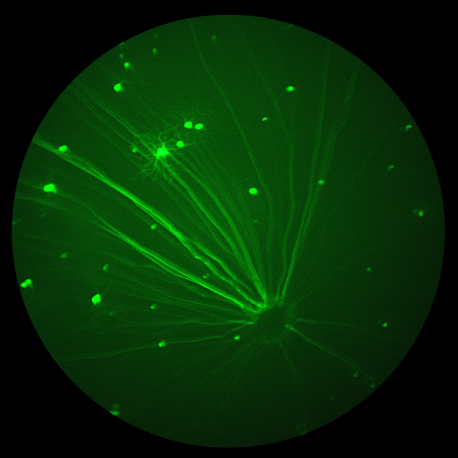In April 2025, we announced the MICRON Image-Guided 810 nm Laser system with the ability to induce geographic atrophy in rodents. Today I’m happy to announce that the system has started shipping to researchers, and the final product includes three laser modes: continuous wave, long pulse, and short pulse. In this blog post we provide […]
30.04
2025
Phoenix-Micron Releases Laser to Induce Geographic Atrophy
Phoenix-Micron announces MICRON 810nm Image-Guided Laser to advance research into diseases like dry AMD. Preclinical research using rodent models is essential for advancing our understanding of dry age-related macular degeneration (AMD), a leading cause of vision loss with no approved cure. Today we are pleased to announce the immediate availability of two 810nm lasers. Working […]
29.11
2021
Phoenix MICRON Spins out of Phoenix Technology Group to Better Serve Eye and Eye-Brain Researchers Globally
Bend, OR, USA, November 29, 2021 — The newly formed company, Phoenix-Micron, Inc., announced today it has completed the spin-out of the Phoenix MICRON® imaging platform from Phoenix Technology Group. This move is designed to increase focus and innovation in products designed to serve the eye and eye-brain research community. The new company, Phoenix-Micron, Inc. […]
24.06
2021
Promising treatment for retinal inflammation studied with the Phoenix MICRON® OCT and exclusive analysis software Insight 2D
In their paper, “Connexin43 Mimetic Peptide Improves Retinal Function and Reduces Inflammation in a Light-Damaged Albino Rat Model,” Guo et al promoted neuroretinal survival in a light damage paradigm by blocking the Connexin43 hemichannels. Using the Phoenix MICRON® OCT to examine the structure of the retina at precise retinal locations as shown by the bright […]
25.02
2021
A better mouse model of retinal vein occlusion with the Phoenix MICRON® laser and OCT
Retinal vein occlusion is the second most common retinal vascular disorder leading to loss of vision in developed countries (after diabetic retinopathy). A lack of treatment options is partially caused by a lack of effective animal models; most rodent models do not show the essential symptom of cystoid edema and often heal quickly. In their […]
18.11
2020
The Phoenix MICRON® IV system and OCT help evaluate promising compounds for treatment of age-related macular degeneration
Age-related macular degeneration affects tens of millions of people worldwide, leading to vision impairment and blindness. Anti-VEGF treatment helps only 25-40% of patients, leaving others with no recourse to this progressive blinding disease. In their article, “Suppression of aberrant choroidal neovascularization through activation of the aryl hydrocarbon receptor,” Choudhary et al explore potential treatment using […]




